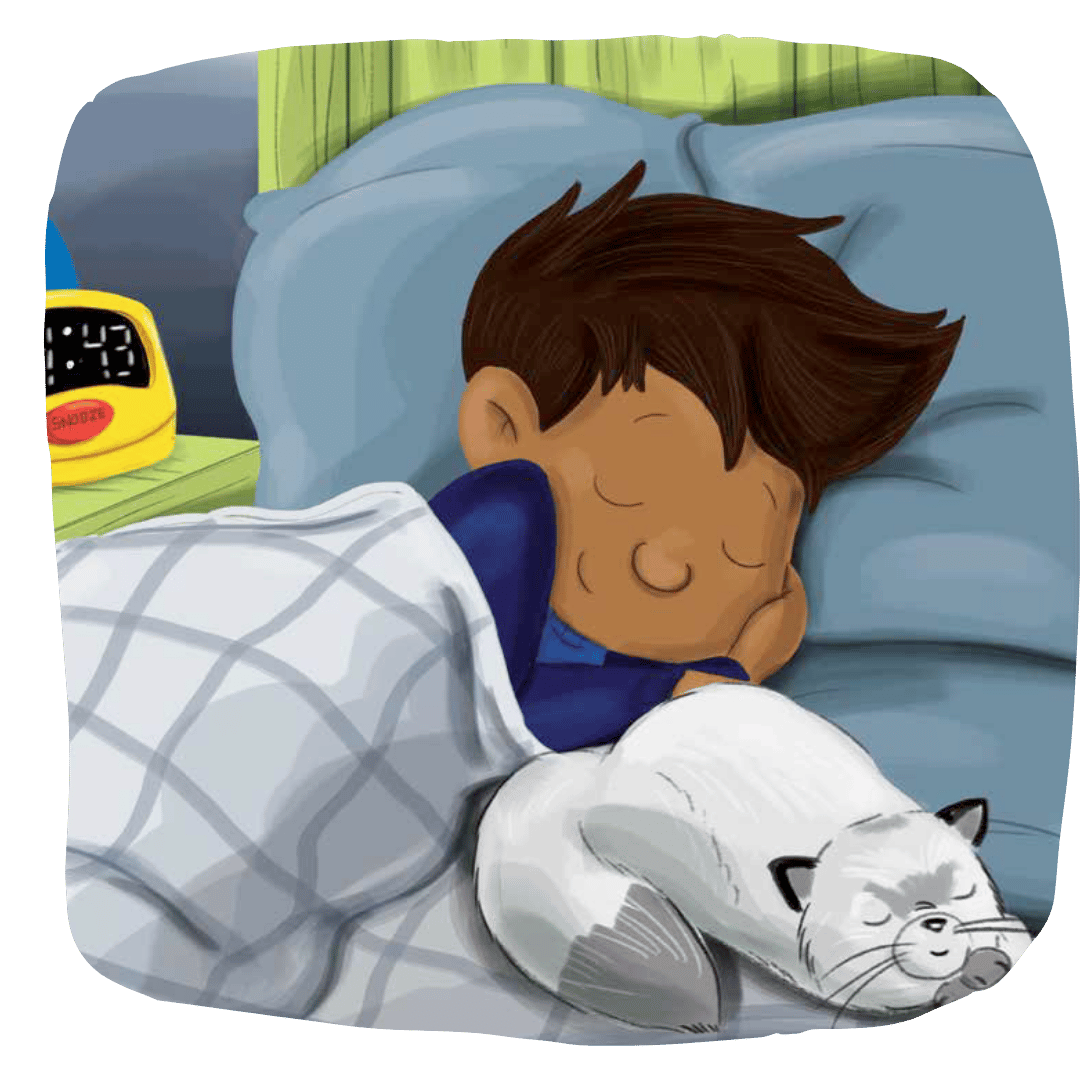Make Sleep Work for You
Posted by Jennifer Law, Boys Town Press Author on Jul 10th 2024
Sleep. Did you know getting the recommended amount of sleep can increase your attention span and memory? It can support your immune system and improve your health. It can lower your risk for health problems like diabetes and heart disease. Sleep can also help manage your weight. Not only that, sleep can help lower your anxiety and depression. It can help you get along better with family, friends, and coworkers.
The same is true for children. Getting the recommended amount of sleep has many benefits for them, too.

Think of a sleeping child. Have you noticed how peaceful they look? When they get enough sleep, peace becomes part of their life when they’re awake.
It’s kind of like a Jenga block game. When you start the game, the blocks are stacked on top of each other, and the tower is as sturdy and as strong as it’s going to be. Then, as you play, you pull out blocks and set them on the top. The tower of blocks becomes more and more wobbly and fragile until it eventually falls apart, and the game is over.
Kids are a lot like that, too. When we help kids get the recommended amount of sleep, we help them be sturdier and stronger. When they lose out on sleep, they become wobbly, fragile, and ready to fall apart.
In school, students who are rested can handle situations better than those who are short on sleep. Well-rested students can cope with disappointments or not getting their way better than their sleep-deprived peers. As the day goes along, tired students get increasingly more wobbly and fragile. Any little block, or situation, may cause them to crumble (crying, yelling, or shutting down).
So how can you help kids be more like a sturdy Jenga tower?
One way is to create a consistent bedtime routine. It may involve a snack, a bath, teeth brushing, pajamas, and a story. So, think about what time you need your kids to wake up in the morning and work back from there. For example, if your kids are between the ages of 6 and 12, go back nine to twelve hours. If your kids are between the ages of 3 and 5, go back ten to thirteen hours (but take into account any daytime naps).
The next step is to think about how long it takes to do the bedtime routine, and then make time for that. If you need your 6-year-old to wake up at 7 AM and you want them to get at least ten hours of sleep, their bedtime routine should start around 8 PM, if the routine takes an hour.
When you know when to start bedtime, then you can make changes as needed.
Maybe your child needs something like twelve hours of sleep in order to wake up easily in the morning. If so, adjust the bedtime until you create a routine that works for both of you.
To keep your child’s Jenga tower from toppling, stick to the bedtime routine. The more consistent you can be, the more consistent your child’s sleep will be. And the more often your child has the recommended amount of sleep, the stronger their tower will be.
Think of all the good things that go along with a good night’s sleep. It can help your child get along with others. It can help them pay attention and improve their learning. It can make them feel happier. It can help them grow and be healthy in mind and body.
Sometimes we don’t give sleep enough credit. But, when you work to get good sleep, getting good sleep will work for you!
For a fun way to talk to children about the importance of sleep, check out Rest to Recharge.
References:
Mayo Clinic. Eric J. Olson, M.D. “How many hours of sleep are enough for good health?” Mayo Clinic. https://www.mayoclinic.org/healthy-lifestyle/adult-health/expert-answers/how-many-hours-of-sleep-are-enough/faq-20057898
My Health Finder. “Healthy Living: Get Enough Sleep.” My Health Finder. https://health.gov/myhealthfinder/healthy-living/mental-health-and-relationships/get-enough-sleep
